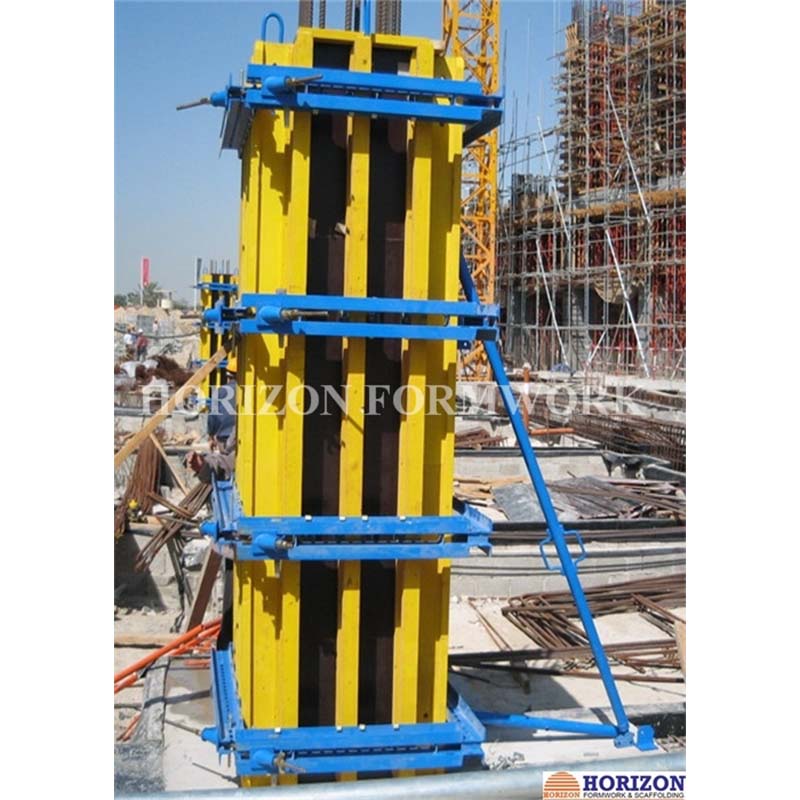नोव्हेंबर . 16, 2024 06:24 Back to list
formwork for floor slab manufacturers
The Role of Formwork in Floor Slab Manufacturing
In the world of construction, efficiency and precision are paramount, especially when it comes to the manufacturing of structural components like floor slabs. One critical element that plays a vital role in this process is formwork, a temporary or permanent mold used to shape and support concrete until it develops sufficient strength. This article delves into the significance of formwork for floor slab manufacturers, exploring its types, benefits, challenges, and innovations.
Understanding Formwork
Formwork serves as the backbone of concrete construction, providing a shape for the wet concrete until it hardens. For floor slabs, which are essential components in buildings, parking structures, and bridges, formwork not only ensures the proper thickness and surface finish but also supports the weight of the concrete during the curing process. The accuracy of the formwork directly influences the structural integrity and durability of the final product.
Types of Formwork
There are various types of formwork utilized in floor slab manufacturing
1. Timber Formwork This traditional form of formwork is made from plywood or timber. It is adaptable, cost-effective, and easy to construct for simple designs. However, timber can warp or rot, leading to potential issues in precision.
2. Steel Formwork Known for its strength and durability, steel formwork is ideal for large projects where repeated use is expected. It provides a smooth finish and is less likely to deform. Steel formwork is heavier and typically requires more significant logistical planning, but it can be reused multiple times, offsetting initial costs.
3. Aluminum Formwork Aluminum is lightweight yet strong, making it easier to handle on-site. It offers better insulation properties and can be manufactured to create complex designs. This type of formwork has gained popularity in recent years for high-rise construction.
4. Plastic Formwork This innovative form of modular formwork is made from high-density plastic. It is resistant to moisture and easy to clean. Plastic formwork is particularly advantageous for low-rise buildings and residential constructions due to its lightweight nature and reusability.
5. 3D-printed Formwork As technology advances, 3D printing has started to make waves in formwork production. This method allows for custom shapes to be created, offering new possibilities in design and reducing material waste.
formwork for floor slab manufacturers

Benefits of Effective Formwork
The advantages of well-designed formwork in the manufacturing of floor slabs are significant
- Precision and Quality Accurate formwork ensures that the dimensions of the floor slabs are maintained, leading to high-quality construction. - Speed of Construction When formwork is efficient, it speeds up the pouring and curing processes, allowing for faster project completion. - Reduced Labor Costs Modular and reusable formwork systems can minimize labor requirements, as they can be assembled and disassembled with ease. - Cost Efficiency While the upfront investment in high-quality formwork may be substantial, the long-term savings in labor and material waste can be considerable.
Challenges in Formwork
Despite its advantages, there are challenges associated with formwork in floor slab manufacturing
- Initial Costs The initial setup for reusable formwork can be high, potentially deterring some manufacturers. - Logistics and Transportation Larger formwork systems may pose transportation challenges and require careful planning to avoid delays. - Maintenance and Care Proper maintenance of formwork is essential to prevent damage and ensure longevity, which requires additional time and resources.
Innovations on the Horizon
The future of formwork in floor slab manufacturing looks promising, thanks to technological advancements. Innovations such as smart formwork systems equipped with sensors can monitor concrete curing and quality in real-time. Moreover, advances in materials science are leading to the development of more sustainable and efficient formwork options, reducing the environmental impact of construction practices.
Conclusion
In conclusion, formwork is an indispensable component of floor slab manufacturing, influencing both the efficiency and quality of construction. The variety of formwork options available today allows manufacturers to choose the best solution for their specific needs, balancing cost, ease of handling, and design flexibility. As the industry continues to evolve, embracing new technologies and sustainable practices will be key to enhancing the effectiveness of formwork in the future.
-
Adjustable Heavy Duty Props for Slab Formwork - Strong & Safe Support
NewsAug.22,2025
-
Formwork Spring Clamp Factories: Quality & Bulk Supply
NewsAug.21,2025
-
Premium Ringlock Scaffolding | China Manufacturer & Supplier
NewsAug.19,2025
-
Efficient Table Formwork for Fast Slab Construction & Reusability
NewsAug.18,2025
-
Timber Beam H20 Formwork & Shuttering - Durable & Reliable
NewsAug.17,2025
-
Timber Beam H20: Premium Formwork & Shuttering Solutions
NewsAug.16,2025